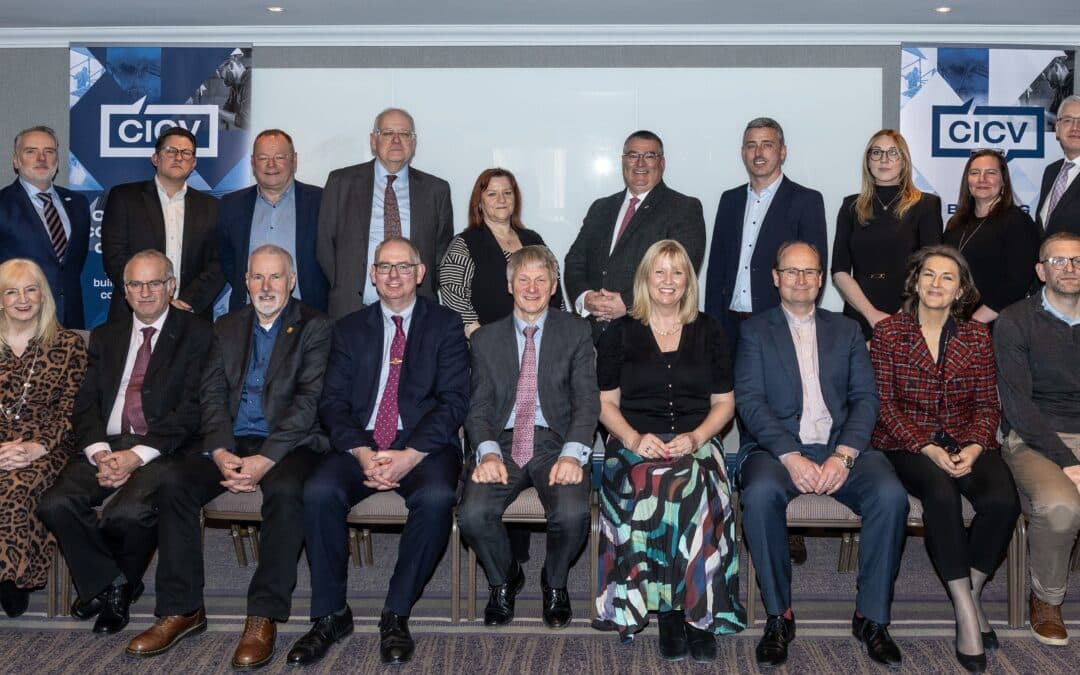
by Oscar Venus | 31 May, 2024 | Main News Feed
In the realm of UK construction, the Design and Build contractual arrangement has emerged as the predominant method, with Specialist Contractors taking on more design responsibilities. This integration of design elements into the overall construction process necessitates Professional Indemnity (PI) insurance for a significant portion of businesses within the construction supply chain. Many contracts now mandate a minimum level of PI cover to mitigate risks effectively.
Following the tragic fire at Grenfell Tower in 2017, the procurement of suitable and cost-effective PI insurance has posed challenges for companies involved in construction activities. Issues such as high excess payments, exclusion clauses related to cladding and fire safety, and the overall expensive nature of policies have rendered obtaining PI cover a daunting task for many businesses. Consequently, certain construction projects have become financially un-feasible due to the unavailability or unaffordability of PI insurance.
Fortunately, the construction PI insurance market has shown signs of improvement in recent years, with the introduction of new capacity leading to increased competition and wider availability of coverage. This positive trend has resulted in reduced insurance rates and the reinstatement of coverage for aspects that were previously excluded.
This comprehensive guide, crafted by Build UK, aims to offer insights into PI insurance within the construction industry. It covers essential topics such as the purpose of PI insurance, the evolving market landscape, and strategies for securing optimal terms in collaboration with your insurance broker.

by Oscar Venus | 17 May, 2024 | Main News Feed
Vistry’s announcement this week raises further concerns for FIS related to procurement in the Housing Sector. In their latest update, Vistry (whose business model has pivoted to focus on the delivery of affordable homes (mostly commissioned by public sector and housing associations). Vistry stated:
“We expect half year and full year profit to be ahead of last year and remain confident in achieving a 40% ROCE and £800m operating profit in the medium term” full report here.
FIS has written to politicians on both side of the house raising the concern that improved profits are, in no small part, a result of the hard squeeze on the supply chain. Profit is being distributed to shareholders rather than invested in our industry and communities. At the same time share price has been increasing and CEO Greg Fitzgerald is getting close to his bonus (which is expected to be roughly the cost of building 1,000 homes!).
The Competitions and Markets Authority (CMA) have this year raised “fundamental concerns” about behaviours in the house building sector and have opened a separate investigation into suspected anti-competitive behaviours of 8 housebuilders (that FIS Members can feed into here).
This intervention follows earlier engagement with government (and opposition) in the third quarter of 2023 when there was a notable step up in aggressive procurement strategies across this part of the market. The fact remains that this programme of affordable and social housing, if commissioned correctly, has massive upside opportunities to help deliver a baseload for the housing industry that will support investment in the delivery ecosystem in terms of skills, jobs and modernisation. This is severely limited by the procurement tactics on show here and the concern remains that fiduciary responsibility to shareholders and driven by a bonus culture is outweighing any social opportunity from house building, This presents a huge missed opportunity for any government.
Do discuss or for further details of the correspondence (for interest or should you wish to raise with your own local MP/candidates) please email: iainmcilwee@thefis.org
If you have information that you would like to raise with the Competitions and Markets Authority, please click here.
To see FIS Campaigns and the latest copy of the FIS Manifesto: A Blueprint for Better Construction click here

by Oscar Venus | 9 May, 2024 | Main News Feed
FIS is proud to support Mental Health Awareness Week. We recognise the importance of mental well-being in the construction industry and strive to provide ongoing support for all FIS members.
As part of our commitment to this cause, we are actively participating in Mental Health Awareness Week 2024, themed “Movement: Moving more for our mental health”. This initiative aims to encourage individuals to prioritise physical activity as a means to improve their mental health.
At FIS, we believe that fostering a supportive and understanding environment is crucial in promoting mental wellness among our members. We offer a range of resources and support systems to ensure that everyone has access to the help they need.
Through these efforts, we hope to create a culture where mental health is valued and prioritized, not just for one week, but every day of the year.

by Clair Mooney | 2 May, 2024 | Main News Feed
After four years of virtual collaboration, the Construction Industry Collective Voice (CICV) convened its inaugural in-person meeting in Edinburgh in April, bringing together representatives from many of its 29 member organisations for the first time.
Alan Wilson, Chair of the CICV, opened the meeting by reflecting on the organisation’s evolution and its continuing commitment to Scotland’s construction industry, stating,
The CICV, born out of necessity during the pandemic, has become a beacon of collaboration. As we meet face-to-face for the first time, we reaffirm our commitment and strengthen our dedication to building on our foundation of unity and resilience.
Ivan McKee MSP, a longtime supporter of the CICV, also provided opening remarks that highlighted the forum’s significant impact on the industry. He praised the CICV’s role in representing a diverse range of sectors and professions and its influence on shaping industry standards and practices that resonate within both governmental and public realms.
The meeting itself focused on outlining the CICV’s strategic future and reinforcing its role as a principal advocate for the construction industry. Discussions included updates on the Construction Accord’s Transformation Plan, and how CICV members’ invaluable insights and expertise are being applied across its various working groups.
Following the meeting, Fiona Hodgson, Deputy Chair of the CICV, reflected on its outcomes, saying,
In an evolving construction landscape, the CICV’s role has become more crucial than ever. Today’s discussion not only reaffirmed our commitment to collective action and strategic foresight but also underscored our leadership in advocating for innovation and resilience within the construction industry.

by Clair Mooney | 18 Apr, 2024 | Main News Feed
Build UK has recently updated its guide to the Building Safety Regime to include all the information published in connection with the latest phase of the regime from 6 April.
The April 2024 version includes the new registers for Building Control Approvers and Building Inspectors and updates to Approved Document B, including guidance for second staircases in new residential buildings above 18 metres in height. Build UK has also produced an overview of the Golden Thread which is available to FIS members, summarising the new requirement to collate and store information for Higher‐Risk Buildings (HRBs), and the timeline shows at a glance when all the key changes take effect.
Homes England has launched the Building Remediation Hub which allows applications for the Building Safety Fund and the Cladding Safety Scheme to be processed via a single portal. The Building Safety Fund covers the replacement of unsafe non‐ACM cladding systems on residential buildings 18 metres and over in height in London, whilst the Cladding Safety Scheme funds the replacement of unsafe cladding systems on residential buildings over 11 metres (11 ‐ 18 metres in London).
Following publication of the fourth report by the Industry Safety Steering Group, Chair Dame Judith Hackitt has released a blog reflecting on the ‘huge progress’ to date and urging the industry to continue to work together to ensure the new regime is a success. The Grenfell Tower Inquiry has confirmed that publication of its Phase 2 report has been delayed and will now be published after the next anniversary of the fire in June.
Source: Build UK
Get to grips with the Building Safety Act with the new FIS E’Learning Course: An Introduction to the Building Safety Act

by Clair Mooney | 15 Apr, 2024 | Main News Feed
The Office for Product Safety and Standards (OPSS), the UK’s regulator for construction products, has organised a webinar to help industry better understand the Building Safety Act and the role of the OPSS.
The webinar, scheduled for 10am – 12noon on 22 April, will be chaired by Peter Caplehorn, CEO of the CPA and co-chair of the CLC’s Building Safety workstream, and includes Louise Barr, Deputy Director Construction Products DLUHC, Duncan Johnson, Deputy Director Construction Products OPSS, and Adam Turk, CEO of Siderise and future Chair of the CPA.
To register for the free event, please follow this link.






